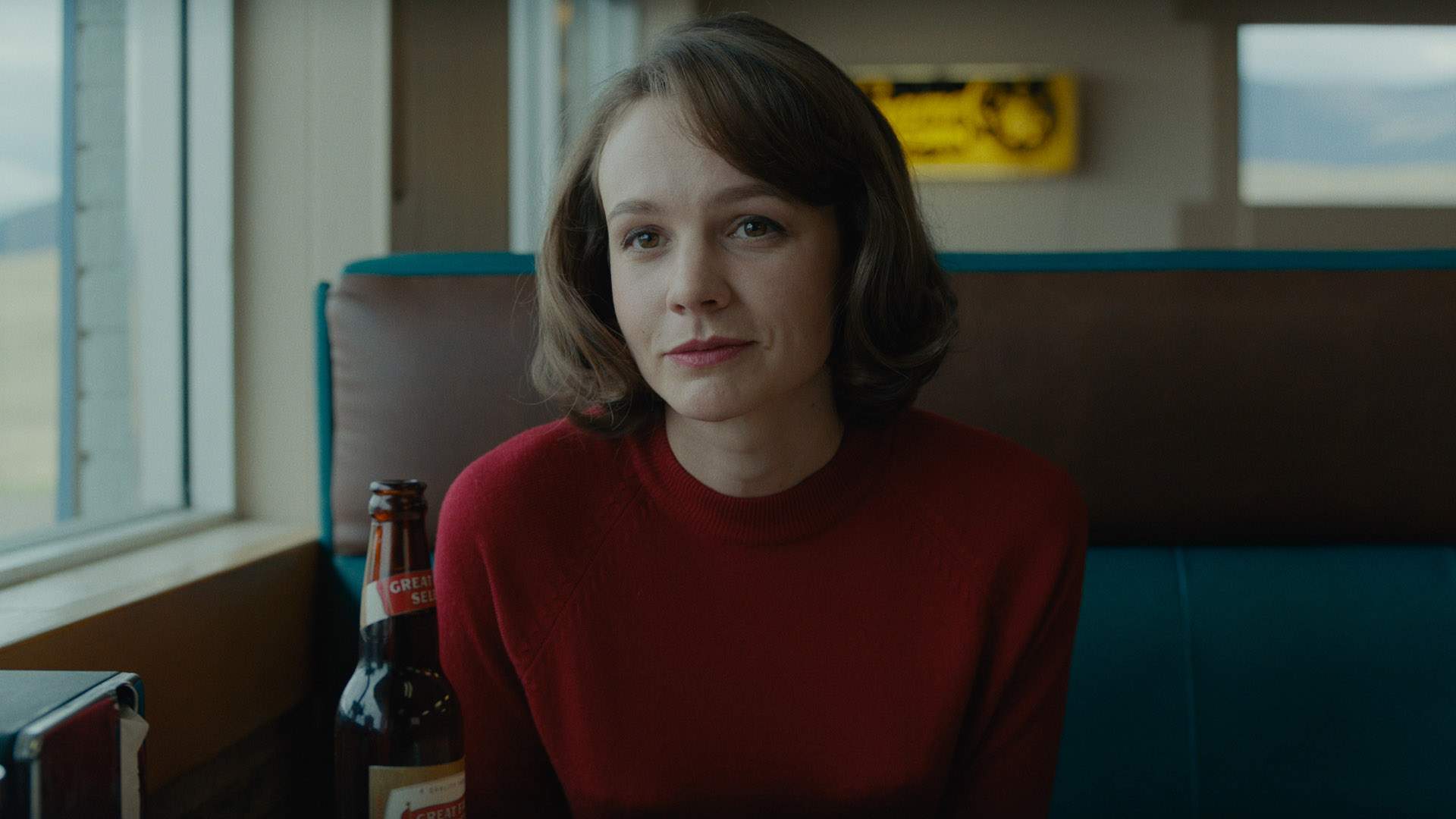Wildlife
Actor Paul Dano directs this meticulous and emotionally affecting marital drama, with Carey Mulligan putting in a dynamite performance as an unhappy small-town housewife.
Overview
When a relationship fails, sometimes it ends with fiery passion. Sometimes, love's spark fades slowly. And sometimes, the dying embers scorch the earth. Wildlife charts the downfall of a marriage that flirts with all three phases, all while forest fires rage on the outskirts of a small Montana town. As the physical flames carve a path of destruction, Jeanette (Carey Mulligan) and Jerry Brinson (Jake Gyllenhaal) let years of resentment, frustration and disappointment ignite into a heated blaze that threatens their family.
As far as metaphors go, Wildlife's is certainly appropriate. Contrary to how it might sound on the page — obvious, or even clumsy — it's also delicately deployed. Adapting Richard Ford's 1990 novel, actor-turned-writer/director Paul Dano and his co-scribe Zoe Kazan make every moment of this portrait of domestic disharmony blister with aching sadness. Wildlife is a film of haunting pain that's often left unspoken, but that crackles with inescapable force and feeling.
It's 1960 when the movie introduces its unhappily wedded couple, as well as their teenage son Joe (Ed Oxenbould). The trio has moved to Great Falls for Jerry's new job as a golf pro at a country club, although any hopes of a blissful fresh start dissipate when he's swiftly fired. Drinking away his discontent and rejecting any work that comes his way, he instead volunteers to fight the flames, leaving his wife and boy at home. Joe waits for his father's hopefully safe return, but Jeanette starts blazing her own trail. First, she gets a job as a swimming instructor to make ends meet; then, she openly has an affair with one of her students, car salesman Warren Miller (Bill Camp).
There's another metaphor at Wildlife's core, stemming from its title. Often, the casualties of an inferno decimating bushland aren't human — they're the smaller creatures that get caught in its way. Dano paints all three of the film's key characters as scurrying victims engulfed by a roaring disaster, however he also makes plain that Jeanette and Jerry started this all-consuming emotional fire themselves.
Stepping behind the lens for the first time, the Love & Mercy and There Will Be Blood star also extracts all-consuming performances from his actors. Gyllenhaal is a ball of tortured angst, desolated by failing to realise his dreams as a man, a husband and a father, while young Australian actor Oxenbould more than holds his own as the son who can only observe as his family turns to ash. But it's Mulligan, segueing from quietly bearing a life filled with emptiness to wilfully indulging her desires, that burns brightest, and hurts and seethes hardest. Alongside her efforts in acclaimed stage production Skylight, it's finely wrought, career-best work.
Indeed, Mulligan's is the kind of performance that helps Wildlife conquer what could've been its biggest obstacle: that scenes from a crumbling marriage have been splashed across the screen many times before. There's such a spark to her portrayal, even when she's in tense and restrained mode, that earns the film its own place alongside greats of the marital woe genre like Cat on a Hot Tin Roof, Blue Valentine and Revolutionary Road. That said, the same description also fits Dano's filmmaking, as he crafts a movie that overflows with emotion even when it couldn't feel more careful and meticulous. Just looking at its artful frames gives that very impression, with each deliberate, patient, mostly still image of nondescript interiors, smoke-filled skies and struggling faces proving as sweeping as the film's simmering sentiments.





